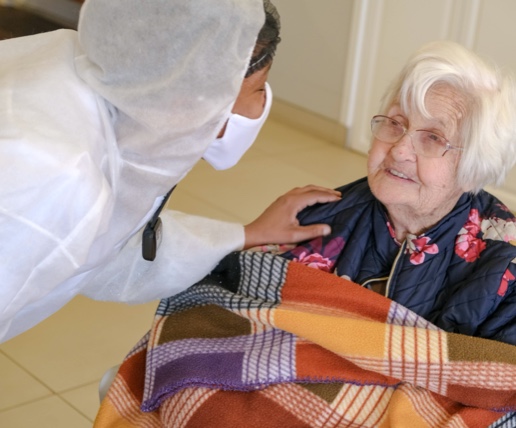
It’s not uncommon for older people to experience some memory loss as they age. In severe cases, this may even be due to cognitive decline caused by Alzheimer’s, dementia or other conditions. However, a growing body of research is showing that depression can affect memory and cognitive function in unexpected ways.
Let’s take a look at some insights into depression-induced memory loss and what to do if it affects you or a loved one:
Let’s take a look at some insights into depression-induced memory loss and what to do if it affects you or a loved one:



Depression affects different types of memory loss
Short-term memory
People with depression may have trouble remembering recent events and facts, such as where they put their keys or if they took their medication. This may be due to depression slowing down the creation of nerve cells making it difficult to form or access new memories.
Prospective memory
Prospective memory involves planning to do something in the near future, such as washing the dishes or returning a call. Depression can make people a lot more forgetful of these types of tasks.
Autobiographical memory
These are memories that focus on a person’s life history. Research shows that people who are depressed can over-generalize and struggle to remember details. They also tend to focus on negative memories and forget the good things that have happened to them.
Short-term memory
People with depression may have trouble remembering recent events and facts, such as where they put their keys or if they took their medication. This may be due to depression slowing down the creation of nerve cells making it difficult to form or access new memories.
Prospective memory
Prospective memory involves planning to do something in the near future, such as washing the dishes or returning a call. Depression can make people a lot more forgetful of these types of tasks.
Autobiographical memory
These are memories that focus on a person’s life history. Research shows that people who are depressed can over-generalize and struggle to remember details. They also tend to focus on negative memories and forget the good things that have happened to them.
Depression could increase the risk of dementia
A study in the British Journal of Psychiatry has shown that depression could increase the risk of dementia, particularly if the person is not treated for their depression. Additionally, cognitive impairments in older patients may be an early warning sign of dementia.
A study in the British Journal of Psychiatry has shown that depression could increase the risk of dementia, particularly if the person is not treated for their depression. Additionally, cognitive impairments in older patients may be an early warning sign of dementia.
Stress and anxiety can also cause memory loss
In addition to depression, stress and anxiety can also result in memory loss. When anxious or stressed, it becomes difficult to focus on the present, absorb new information, from recent memories and remember old ones.
In addition to depression, stress and anxiety can also result in memory loss. When anxious or stressed, it becomes difficult to focus on the present, absorb new information, from recent memories and remember old ones.
Other possible reasons for memory loss
Of course, there are a number of other reasons for memory loss that may not include depression. These can be everything from alcohol and drug use, minor head trauma or injury to hypothyroidism, brain disease and even a vitamin B-12 deficiency amongst others.
Of course, there are a number of other reasons for memory loss that may not include depression. These can be everything from alcohol and drug use, minor head trauma or injury to hypothyroidism, brain disease and even a vitamin B-12 deficiency amongst others.
Some signs that you may be depressed
If you are concerned that you or a loved one may be suffering from depression, look out for these common symptoms:
• Overwhelming sadness • Lack of drive • Lessening of pleasure in previously enjoyed activities • Changes in sleep and/or appetite • Lack of concentration • Loss of energy • Hopelessness or guilty thoughts • Physical aches and pains • Suicidal thoughts
If you are concerned that you or a loved one may be suffering from depression, look out for these common symptoms:
• Overwhelming sadness • Lack of drive • Lessening of pleasure in previously enjoyed activities • Changes in sleep and/or appetite • Lack of concentration • Loss of energy • Hopelessness or guilty thoughts • Physical aches and pains • Suicidal thoughts
How to manage memory loss
Treating depression with therapy and medication may help improve memory loss. However, there is no conclusive scientific evidence of this. Some other strategies for treating memory loss include creating reminders and calendars for upcoming events, spending more time on a single task to commit information to memory, removing distractions, and focusing on one thing at a time.
Treating depression with therapy and medication may help improve memory loss. However, there is no conclusive scientific evidence of this. Some other strategies for treating memory loss include creating reminders and calendars for upcoming events, spending more time on a single task to commit information to memory, removing distractions, and focusing on one thing at a time.
When to see a doctor
If you or your loved one show symptoms of memory loss and depression, it’s recommended that you seek help from a professional. They will be able to conduct physical and cognitive examinations to help diagnose the issue and prescribe a suitable treatment programme.
If you or your loved one show symptoms of memory loss and depression, it’s recommended that you seek help from a professional. They will be able to conduct physical and cognitive examinations to help diagnose the issue and prescribe a suitable treatment programme.
At Totalcare, we are fully equipped to provide the medical care, emotional support and exceptional facilities our residents need to live a happy and rewarding life in retirement. Our residents are looked after by our national nursing services manager, nursing services manager, sisters, nurses and care workers. Residents also have access to a doctor, occupational therapist and support services.
Our team will assess the needs of each resident to ensure they get the exact level of care they need throughout every stage of their life.
Our team will assess the needs of each resident to ensure they get the exact level of care they need throughout every stage of their life.
Find out more about us or head over to our retirement facilities.
